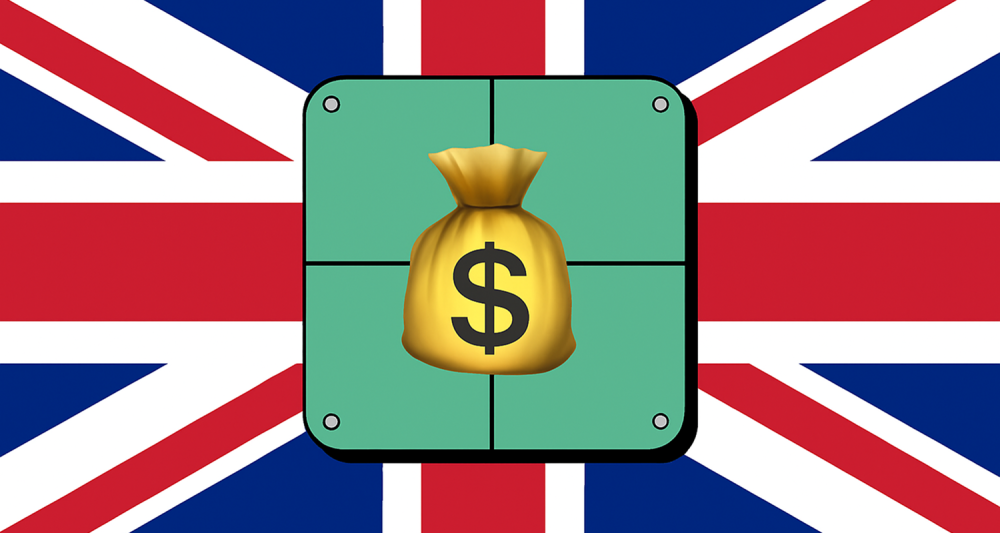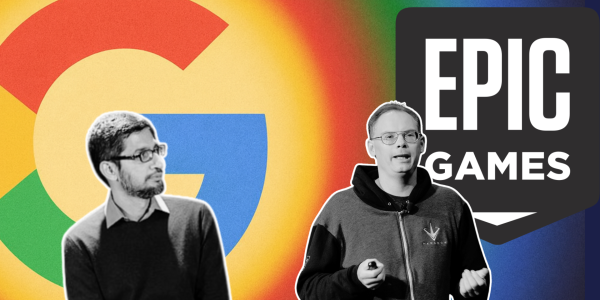Britain Backs Gaming: A £30m Bet Worth Making


By Chris Meredith, SVP Business Development - EMEA at Xsolla and Nick Poole, CEO at Ukie
It’s not every day the UK government throws its weight behind the video games industry. So when ministers unveiled a £30 million funding commitment as part of the Creative Industries Sector Vision, it was more than just a photo-op with upbeat soundbites - it was a rare, welcome, sign that the people in charge are starting to take games seriously.
Because they should. Video games are no longer a side-show to the “real” creative industries of film, television, and music. They are the creative industry. In 2024, the global games market generated more revenue than film and music combined, and the UK - quietly but consistently - has been one of its most inventive players. British developers have made games that span genres, generations, and global markets.
But brilliance needs backing. And this latest funding package, while not a silver bullet, is a genuinely promising step forward.
Small Studios, Big Potential
Let’s not scoff at £30 million. For many early-stage studios, even a fraction of that funding can mean the difference between a dream shelved and a game shipped. The commitment to support scaling and skill is especially important. The UK is teeming with game development talent - from Leamington Spa to Dundee to the edge of East London’s Silicon Roundabout - but too often, these teams struggle to get beyond the prototype phase. Whether it’s access to funding, business support, or simply knowing how to turn a good idea into a sustainable studio, the early years are perilous.
By targeting growth and training, the funding could be the support beam that holds up a whole tier of emerging British studios. And it’s heartening to see a focus on regional development too. Some of the UK’s most exciting game-making communities exist outside the capital, yet they often go overlooked in policy and investment decisions. A more balanced, national approach is both smart economics and smart politics.
Toward a National Games Strategy
What’s also encouraging is the tone. This isn’t just about throwing money at a few headline projects. It’s about recognising video games as a serious, strategic part of the UK’s economic future. That’s a subtle but significant shift. For years, games have occupied an awkward space in the government’s imagination - neither full-blown tech nor fully “creative”. They’ve been treated as something vaguely cool but slightly suspect, a teenage pursuit that accidentally became a multi-billion-pound industry. This funding move suggests a new understanding: that games are not only entertainment, but also exports, jobs, IP engines, and training grounds for next-gen tech skills.
Learning from Global Leaders
If anything, this could be the beginning of a new kind of industrial policy - one that treats games as a keystone sector, like automotive or fintech. The UK has a rare opportunity here: to be the place where creativity, technical innovation, and entrepreneurship come together in an industry that is growing year on year, across all demographics and platforms.
Look at countries like Canada, South Korea, or Finland. Montreal offers developers up to 37.5% in tax credits, alongside a mature support ecosystem. The UK may not compete on sheer incentives alone, but what it can offer is unmatched creative talent, a strong academic backbone, and a culture of indie innovation.
What’s also promising is the growing role of private-sector partners stepping up to fill the gaps. Companies like Xsolla, which provide monetisation and publishing infrastructure for indie developers, are becoming increasingly vital for UK studios looking to scale globally without losing creative control. Their presence in the UK market - and growing interest in UK-based content - shows international confidence in what British developers can deliver.
The Work Still Ahead
That said, challenges remain. The industry needs better pipelines - from universities into jobs, and from underrepresented communities into leadership. This is not just an economic imperative but a cultural one. Games are global, and the teams making them should reflect the players buying them.
Here, organisations like Ukie (UK Interactive Entertainment) continue to play a crucial role - not just as industry advocates but as translators between developers and policymakers. Their work has helped secure support like this latest round of funding and has kept gaming on the government’s radar during a time of considerable political churn.
At Ukie, we often find ourselves bridging the worlds of developers, funders, and policymakers and what stands out most is the incredible, untapped ambition running through our indie studios. We have seen small teams build disruptive ideas that, with just a little more scale support, could become global hits. These businesses are creating unique content models, live service formats and genre disrupting gameplay that does not fit established funding models.
The government’s recognition, shown through its new Industrial Strategy and Creative Sector Plan, is a signal that these studios are no longer operating on the fringes but are seen as central to the UK’s creative and economic future.
This is a chance to combine their raw creative potential with strategic support, helping them grow into globally competitive businesses that will empower the next generation and drive meaningful, long-term growth. But success will require a relentless focus on conversion by turning that investment into export ready, diverse, sustainable studios.
To make this funding truly transformative, it should be part of a wider, long-term strategy that can help us Press Start on Growth. This means modernising Video Games Tax Relief to support live operations and continuous content development, and redesigning the skills pipeline to bring diverse talent into senior roles. Equally important is boosting growth in regions beyond London and the South-East, unlocking the potential of creative hubs up and down the country.
This £30 million investment is an important first step and with the right choices, the UK will be the leading global hub for new IP and innovation. - Nick Poole OBE.
The Start of Something Bigger?
So yes, £30 million won’t transform the landscape overnight. But it’s a bold down-payment on a high-growth, high-impact industry. It signals that the government is finally waking up to the real potential of UK games: not just as a cultural product, but as a globally competitive, economically powerful, and proudly British success story.
And if ministers can resist the urge to meddle or move on, and instead commit to long-term, stable support - with industry bodies like Ukie and innovative enablers like Xsolla in the mix - then this could be the moment the UK games industry really levels up.











